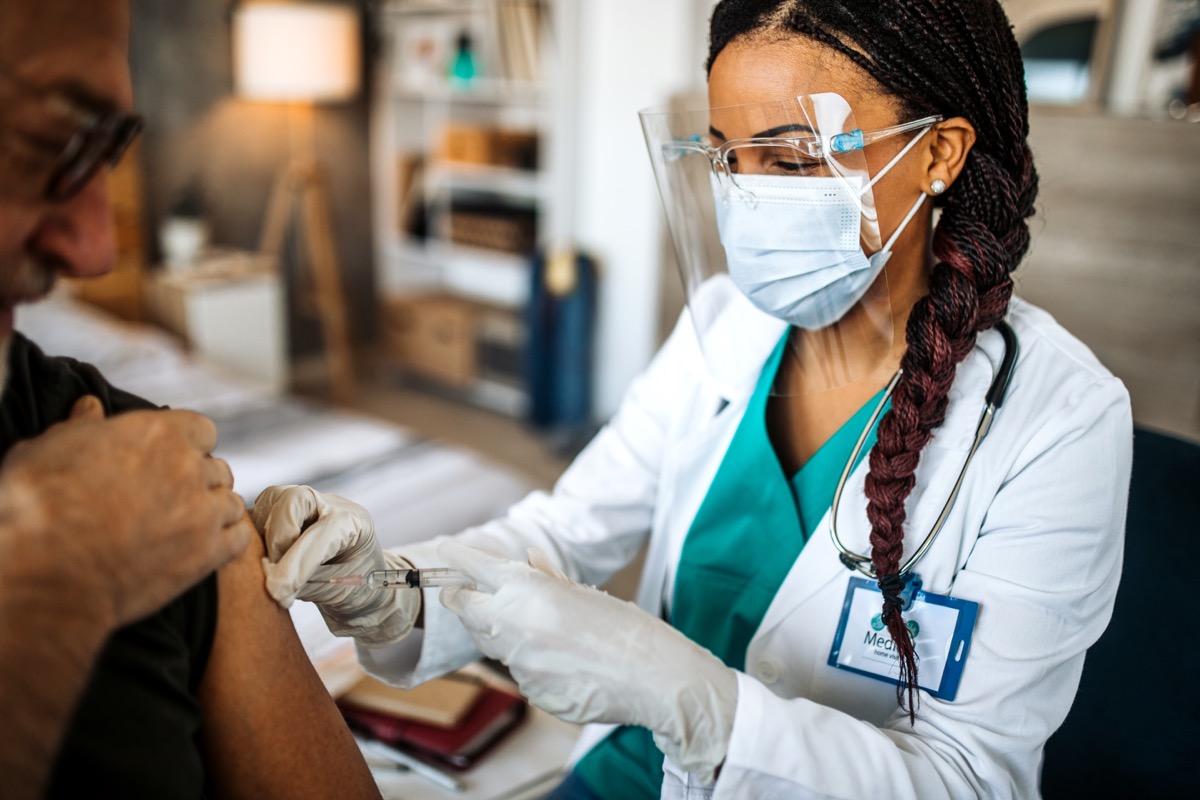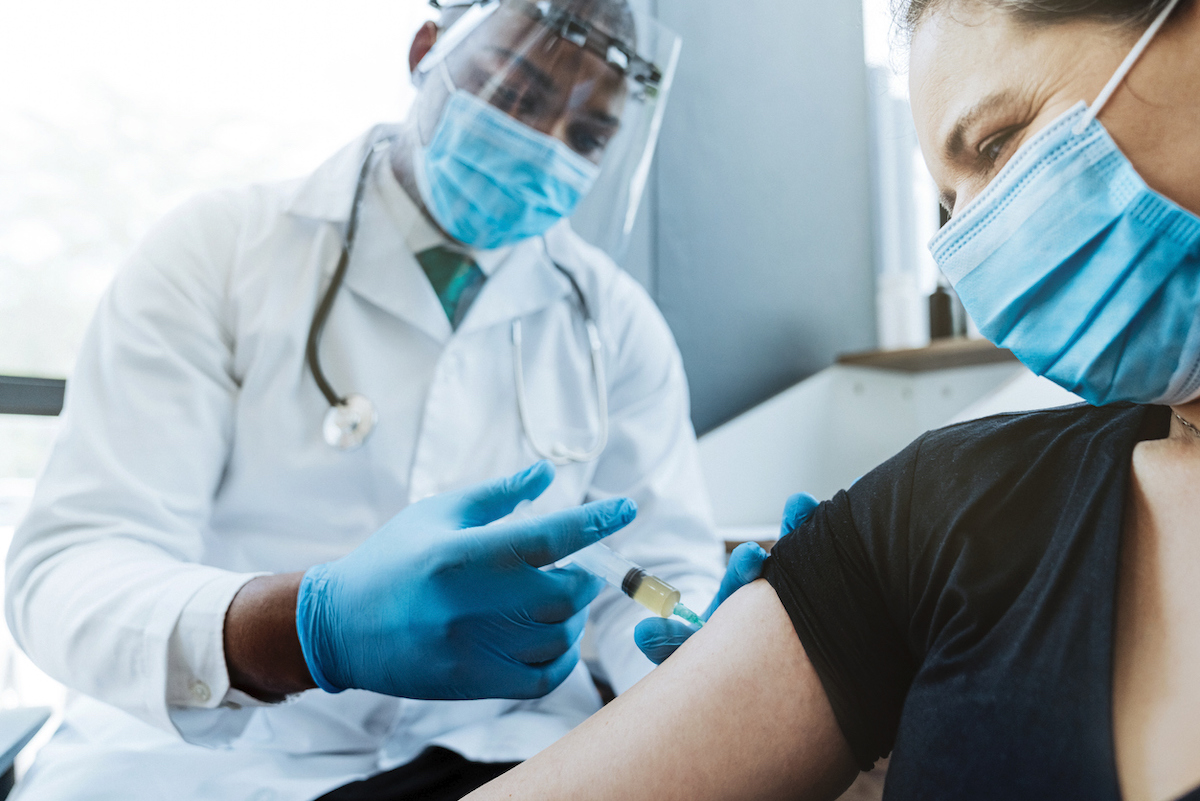The newly developed COVID vaccines use mRNA molecules instead of a weakened or inactivated virus, allowing the body to produce the antibodies needed to fight off the disease without the risk of potentially becoming infected, as with traditional inoculations. Now, the updated CDC guidelines, which were published on Dec. 26, specify that the mRNA COVID-19 vaccines that were developed by Pfizer and Moderna can safely be administered to people who suffer from specific ailments, conditions, or previous health issues. Read on to see which preexisting conditions were highlighted in the update, and for more on who shouldn’t get both doses of the vaccine, check out These Are the Only People Who Shouldn’t Get 2 Doses of the COVID Vaccine. Read the original article on Best Life. The CDC points out that as a group that is statistically at a higher risk of developing severe COVID-19, those who are HIV positive or have a weakened immune system due to medications or other illnesses can still safely receive a coronavirus vaccine. The agency points out that people with HIV were included in the original clinical trials for both Pfizer and Moderna, but that specific data from the group hasn’t been released yet. The guidelines warn that “people with weakened immune systems should also be aware of the potential for reduced immune responses to the vaccine,” urging anyone with this condition to continue to follow basic health guidelines such as wearing a mask, social distancing, and diligent hand washing. And for more updates on COVID, sign up for our daily newsletter. Anyone suffering from an autoimmune disorder was also cleared to safely receive the COVID-19 vaccine by the CDC. The agency points out that participants with these conditions were also eligible to take part in initial clinical trials, but similar to those with HIV or weakened immune systems, isolated data on its effects have not yet been released. And for more on how to prepare yourself for your vaccine, check out The One Side Effect Dr. Fauci Is Worried About With His Next COVID Shot. Although its true causes are unknown, Guillain-Barre syndrome is a condition in which the immune system attacks nerves throughout the body, creating numbness and paralysis in patients. The vast majority of patients recover, and their previous brush with the condition does not preclude them from getting vaccinated against COVID-19.ae0fcc31ae342fd3a1346ebb1f342fcb “To date, no cases of Guillain-Barre syndrome (GBS) have been reported following vaccination among participants in the mRNA COVID-19 vaccine clinical trials,” the CDC guidelines state. “With few exceptions, the independent Advisory Committee on Immunization Practices (ACIP) general best practice guidelines for immunization do not include a history of GBS as a precaution to vaccination with other vaccines.” And for more on the vaccination process, check out These 2 States Are Going Against the CDC’s Vaccine Recommendations. During clinical trials, very isolated incidents of Bell’s palsy—a temporary paralysis of muscles on one side of the face—were reported as a side effect in some participants. However, the guidelines point out that “the Food and Drug Administration (FDA) does not consider these to be above the rate expected in the general population,” adding that “they have not concluded these cases were caused by vaccination.” The CDC says this clears anyone who may have previously been affected by the condition to safely get the vaccine. And for more facts about getting vaccinated, check out Dr. Fauci Just Debunked the 4 Biggest Myths About the COVID Vaccine.



